#environmental economics
Text
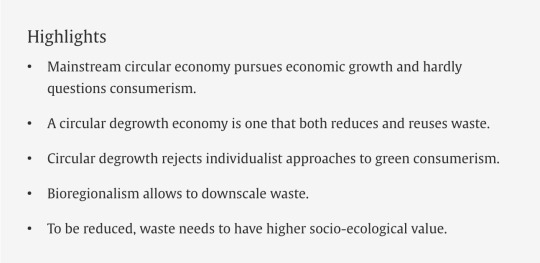
Abstract
Circular economy and degrowth offer two different imaginaries for a future social metabolism: both seek to downscale waste and the demand for raw materials. Yet whereas degrowth proposes a circular metabolism to reduce consumption and production, mainstream circular economy sees waste as an opportunity for sustainable growth. This paper puts these two visions of circular futures into dialog. It unpacks the institutional dimensions of these two approaches, focusing on how they produce relations with and responsibilities to the future. It argues that the extent to which circularity can deliver its promise of reduction depends on the value that is ascribed to both present and future waste. This value is defined by the institutional conditions that regulate the responsibilities, geographies and conceptions of value mobilized in dealing with waste. The paper dissects three institutional shifts necessary for a degrowth circularity: from individual consumers to collective responsibilities in waste reduction, from global regional waste markets to bio-regional waste economies and from monetary to socio-ecological value of waste.
3 notes
·
View notes
Text
By Mathis Wackernagel
Global Footprint Network
Nov. 2, 2022
A larger-than-life luminary – kind, gentle, clear, persistent, honest, caring, and utterly brilliant– left us living beings on this precious planet. Herman Daly also left a huge intellectual mark of the highest relevance.
Experiencing and witnessing segregation, religious exclusion, health challenges, and economic inequality, he used his first-hand observations to constructively question realities and dogmas that are not serving people. His contributions to economics are second to none. He asked and often also powerfully answered fundamental questions with a fresh set of eyes, coming to propositions and conclusions that embraced, and were compatible with, the physical foundation of our realities. He approached the physical constraints of our planet in ways that served human needs rather than embellishing established but misguided doctrines. Logic and systemic self-reflection, rather than convention and arrogance, characterized his inspiring work. He repositioned economics. Indeed, he worked on rescuing economics, which had lost its way and forgotten that the economy is embedded in the biosphere.
Herman Daly, who would have deserved multiple Nobel Memorial Prizes for his wide-ranging contributions, was actively and persistently ignored by the canonical, orthodox economic guild, ultimately at their own peril, and that of human kind. Professionally, his academic community had no space for him. Eventually, after a stint at the World Bank around the Rio 1992 UN Earth summit, he had to join a public policy department. His clear and persuasive logic must simply have been too powerful and his criticism to fundamental. Traditional economics had no desire to have their boat “rocked”.
They may have said that Herman’s perspective was politically unrealistic. Herman agreed and countered that mainstream economics was physically unrealistic. And that ultimately, physical laws were less bendable than political expectations.
In spite of being accessible, thoughtful, highly relevant, and deeply insightful, the New York Times regrettably covered him, to my knowledge, only twice. Once in 1972, with a short article that caught the attention of the MIT team working on the “Limits to Growth”. It led to an enduring friendship with those researchers, and a brief discussion of Herman’s core ideas in their report, which turned into the possibly most influential sustainability primer in human history. The second time the New York Times featured Herman was barely three months ago, with a worthy interview in the weekend magazine.
50 years later, it took a respected economist of the stature of Partha Dasgupta to reemphasize that the economy is embedded in the biosphere. His well received Biodiversity Review opened with Herman’s graphically beautified diagram conveying just that. This reminder is still needed, and still revolutionary for mainstream economics, contradicting the economic premises funneled into today’s economics students around the world. This is stunning for a time when ecological overshoot stands at 75% above what Earth can regenerate, and the greenhouse gas concentration in the atmosphere is over 60 ppms above a concentration that is marginally compatible with the Paris Climate Accord’s intention to limit warming to 2°C.
The sweetest introduction to Herman’s thinking is Peter Victor’s biography called Herman Daly’s Economics for a Full World. As a delightful, thoughtful friend and peer of Herman, Peter produced a beautifully crafted, respectful and thoughtful review of Herman’s life and his main ideas. Peter himself being an instrumental, leading ecological economist as well as a gentle soul and deep listener, sat with Herman for many hours to listen to his life story and then synthesize his central insights and argumentations into a wonderfully practical and digestible book.
The book starts with a rich chapter outlining Herman’s life. It covers his growing up in the segregated South, his life with polio and the big decisions it imposed on him as a child, his love for Brazil and his brilliant wife Marcia, and his professional trajectory. From there, Peter summarizes Herman’s core ideas, from fundamental philosophical and ethical considerations all the way to trade, metrics, benefit of growth, steady-state economics, and much more. The thinking is presented with lightheartedness and care, including the world’s reactions. It is tragic that the misunderstandings from fellow academics and blatant rejections from fear mongers dampened the uptake that his thinking deserved.
Herman’s life would serve as a tragic case study of Thomas Kuhn’s classic, The Structure of Scientific Revolutions. Or maybe rather it would have been a 2.0 version of such a not yet achieved scientific revolution as it has not been just one but several generations of economists that have stood in the way of bringing Herman’s obvious insights into mainstream Economics 101 classes. Were these ideas included, I am certain that more students would understand the relevance and importance of economics.
Another tragedy is that the world has moved so much deeper into ecological overshoot since Herman Daly’s early advice that his suggestions from back then are no longer sufficient. Back in the late 1960s, he proposed his idea of an “optimal size” for an economy, the possibility of uneconomic growth when the cost of growth starts to overshadow its benefits, and the conclusion that expansion means increasing impoverishment in a world of uneconomic growth. He therefore advocated for “steady state economics” as a transition strategy in order to enable all people to thrive without increasing the material throughput. Given the massive overshoot, operating our economy in steady-state is by now no longer an option, one that could have been quite easily achievable in the 1970s.
Because of our collective persistence to recognize uneconomic growth, overshoot has persisted and massive shrinkage will become unavoidable. The question no longer is whether overshoot will end, but rather, as Peter Victor reminds us, how. Will this imbalance end by design or disaster? The inquiry therefore needs to redirect, away from whether we want economic growth or not, to what happens if we can no longer get growth as the economy has become to deplete and damage our host planet.
Herman, we already miss you. We also profoundly thank you for your trust, including for giving us early on your moral support and endorsement as an advisor when we started Global Footprint Network. You have given to humanity so much, in such digestible, actionable bits. Thank you, Peter, for your precious effort to capture pearls of Herman’s wisdom and make it accessible for all those dedicated to a thriving future for all.
With all the wonderful holidays around the corner, consider delighting your engaged friends, particularly the younger leaders in your circles, with a copy of Peter’s book about Herman. It gives you two delightful human beings for one, two role models and much practical insight. What better gifts are there in a world of overshoot?
You can also read the Univerity of Maryland’s tribute here, where Herman Daly was Public Policy professor emeritus.
3 notes
·
View notes
Text
Review of Global Hunger Index
Muhammad Hammad
As the year 2030 looms and just seven years remain to achieve the Sustainable Development Goals, nearly three-quarters of a billion people are unable to exercise their right to adequate food. Hunger is not new, and neither are its drivers.
What is new is that we now live in a time of what has been termed “poly-crisis”: the compounding impacts of climate change, conflicts,…

View On WordPress
#Development Economics#Environmental Economics#Food Crisis#global hunger#Hunger#Hunger in Afghanistan#Social Development#Sustainability Challenges#sustainability practices#Sustainable Development#Sustainable Development Goals
0 notes
Video
youtube
Will Carbon Markets help Regenerate a Better World?
#youtube#carbon markets#climate change solutions#sustainable future#environmental economics#regenerative practices#carbon offset programs#green finance#emission reduction strategies#global sustainability
0 notes
Text

Ian Somerhalder, (Instagram, January 26, 2018)
—Soul of the Sea: In the Age of the Algorithm, Nishan Degnarain (2017)
#ian somerhalder#soul of the sea#nishan degnarain#Environmental Economics#political science#Business & Economics
0 notes
Text
Ken Kitatani - The Managing Director
Ken Kitatani, Managing Director of a UN-accredited Think Tank, is an ethics and values expert on a mission. Hailing from Japan, and raised in New York, his roots are global. Ken's dedication to climate change policy, carbon neutrality, and AI policy underscores his commitment to creating a prosperous, equitable world.
1 note
·
View note
Text
rolling the DICE
The Intercept has a long take-down of William Nordhaus’s DICE climate change economic model. Well, it’s not just this journalist, who may not have past middle school algebra for all we know, in this openly left-leaning publication taking him down, it’s Joseph Stiglitz, Nicholas Stern, and Herman Daly among others. So despite some unnecessarily inflammatory language, I found the article to be a…
View On WordPress
0 notes
Text

People seem to think this is fake because it's written in English. Apart from the racism in believing that Arab doctors and nurses aren't fluent in English (a second or official language for half of Asia), Palestinians have deliberately been addressing their audience in English on every social media, from journalists to children, because they know speaking English to Westerners immediately makes people more human in their eyes. Because language is one of the ways the imperial cultural hegemony conditions us (yes, everyone in the world) to see who qualifies as "people" and who are simply a mass of bodies who were always made to suffer and die. Gazans know this deeply, which is why they have been using English to beg and plead through social media, "We're not numbers! We're not numbers! We're people like you, we speak your language, we deserve to live!" all the while they're systematically slaughtered.

Israeli forces also encircled Al Shifa Hospital yesterday and bombed it for several hours while shooting dead anyone trying to flee including medical staff moving between buildings. Not sure whether it's still continuing because WHO lost all communications with its staff there a few hours after. The last new report said that thirty-nine babies had been removed from the incubators before the power went out. It's extremely unlikely they will survive.
Please understand that these atrocities depend on the war of attrition between governments and public attention. The momentum of public outcry is difficult to sustain through repeated stonewalling and bureaucratic intractability. When we're flooded with these reports and a sense of futility and despair replaces the anger, it allows compassion fatigue to set in and the violence to become normalized. Massacring hospitals, killing sick children and openly targeting humanitarian aid workers (Netanyahu just declared the UNRWA is in league with Hamas) will become simply more news articles that fade into the background, and open genocides will soon become part of the "lesser evil".
Take care of yourselves how you can, take distance where needed, but please never tune out and give up on the two million people for whom we are the only witness and hope. Never stop boosting and sharing the news and posts you find, never stop getting out there and joining every protest you can, however small. Anger burns out, which is why activism must depend on an immovable sense of justice and uncompromising value for human life. It's not just about Gaza, it's about the kind of evil our generation will be coerced into accepting as unchangeable and inevitable hereafter.
#but also like it's a lot about us and especially you in the West#every bomb dropped on Gaza brings us closer to the brink of‚ if not a world war‚ an eruption of regional conflict#with devastating economic and environmental effects across the world#I'm tired of repeating this and my followers are prob tired of seeing it#but someone has to#war of attrition like I said#free Palestine#tw child murder#tw child death#tw baby killing#tw ableism#disability justice#war crimes#gaza genocide#save gaza#gaza under attack#palestinian genocide#israel is a terrorist state#knee of huss
7K notes
·
View notes
Text
Justice 40
Joe Biden is boring and often bad at tooting his own horn, but by god, he is good at process.
Justice 40 is simple but powerful application of that. its a shift in how the executive branch works. 40% of money from a bunch of existing programs should go to census tracts that are overburdened with pollution, at higher risk for climate change, and have been historically underserved.
The shorthand here is basically "communities that don't have enough internal resources to deal with long term problems". So yes, communities that had been redlined for decades, ones that have Superfund sites, ones that have high rates of asthma from air pollution.
and this is by census tract. Not city. census tract. So parts of New York City qualify... but other parts don't. And the city HAS to use the money in the targeted part. it doesn't go into the communal pool. it's for THAT tract specifically.
Also all land federally recognized as belonging to a Native American tribe and all Alaskan Native Villages qualify, specifically.
And again, this is for existing programs that are already running and have existing staff and budgets. They're supposed to prioritize grants and projects for those areas specifically. And that's everything from Department of Agriculture, to FEMA, to Labor, to Environmental Protection.
Does it instantly get rid of all the baked in racism from decades past? No, not even close. But it puts in a countermeasure that has a concrete and measurable goal to aim for rather than a nebulous "suck less." even if the administration changes, many of those changes will stick.
And as things improve, some tracts may come off the list! Some may go on that weren't there before!
You can see a map here. Blue highlighted tracts are "disadvantaged" so qualify for that extra assistance! Check and see if you live in one or part of your town does. Because if you've been hearing constantly "we can't afford to fix X problem..." and you're in that tract.... there's money available. For you. Build that sidewalk, fix those lead pipes, get that brush truck your volunteer fire department has been asking for.
And tell your local officials that! "did you look at Justice 40 for funding". And even if they're doing their best, particularly people in little towns.... being a government official isn't their full time job. They may have missed it. Just asking them about the program may suddenly open a world of possibilities.
9K notes
·
View notes
Photo
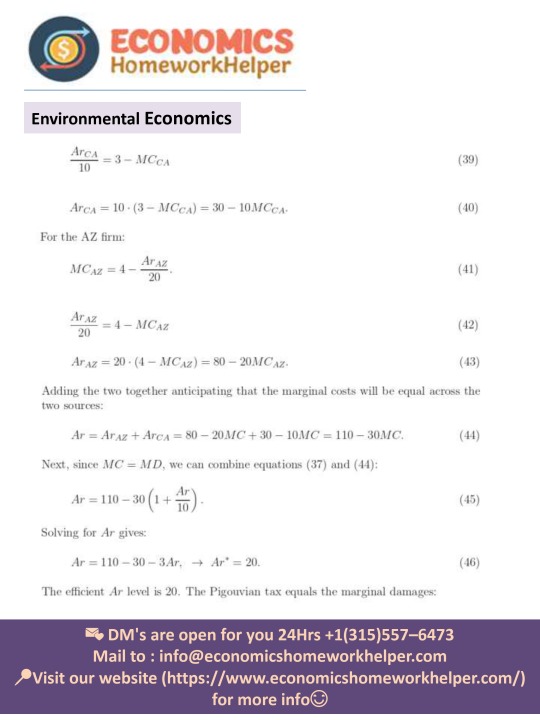
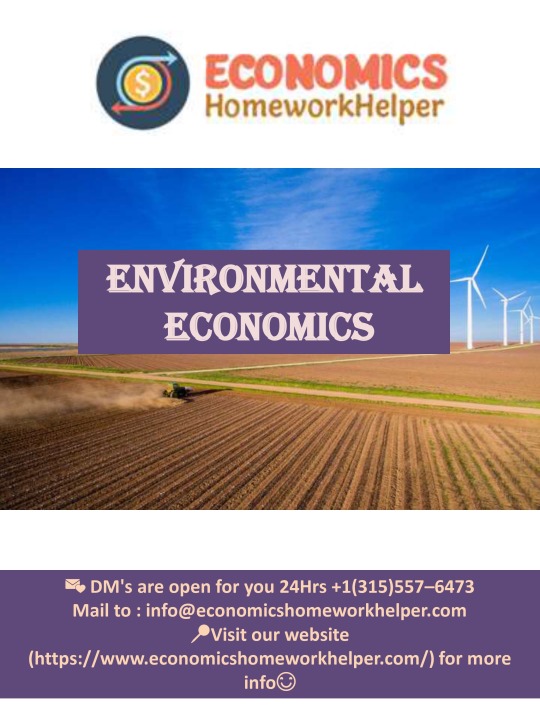
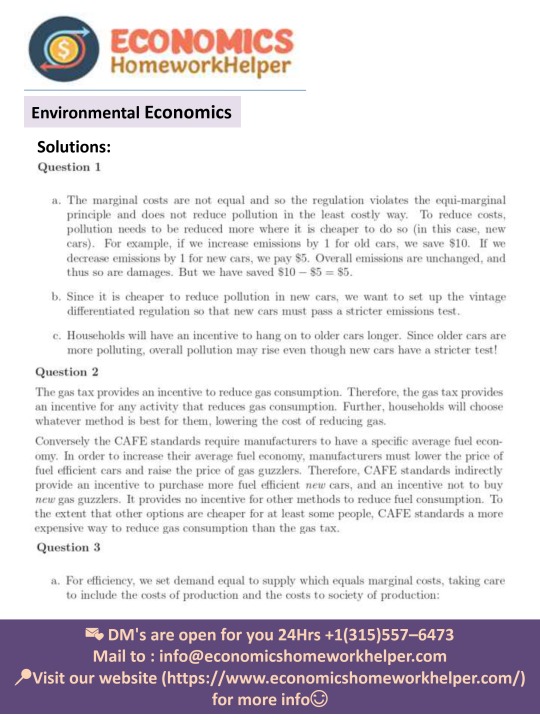
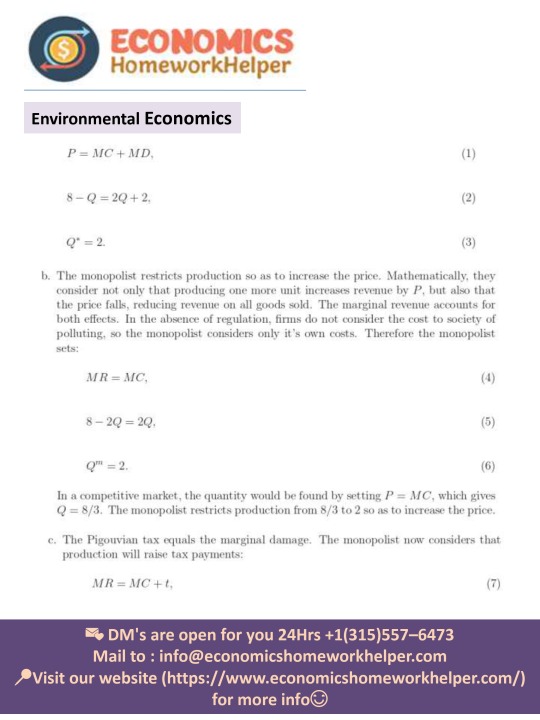
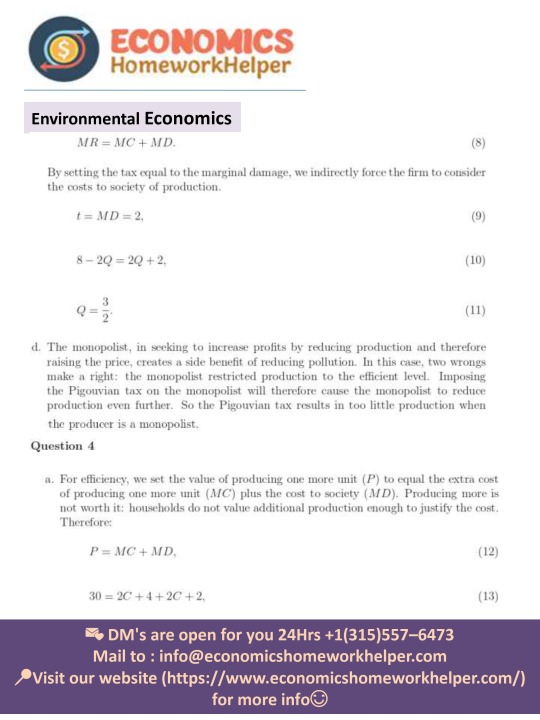
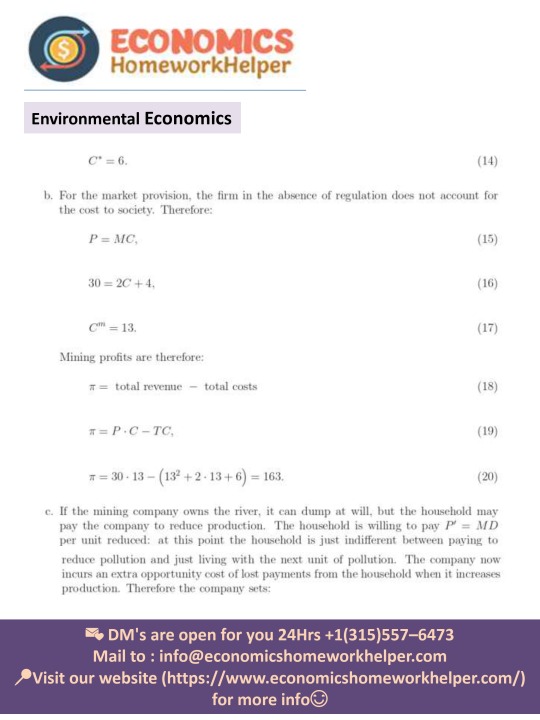
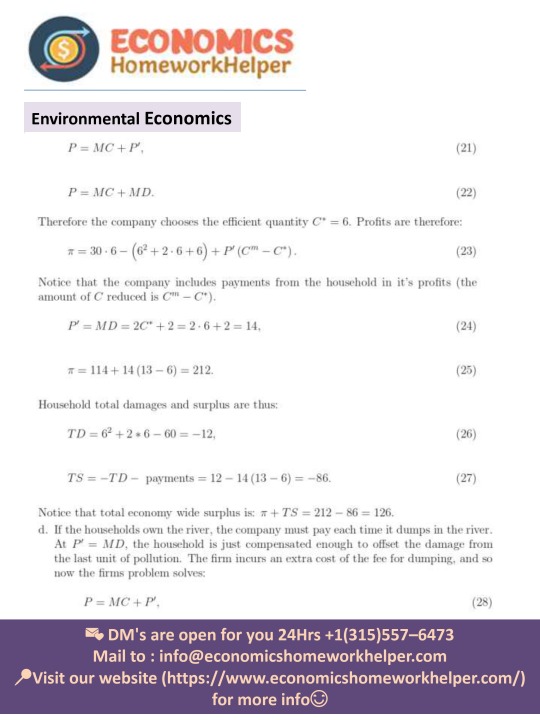
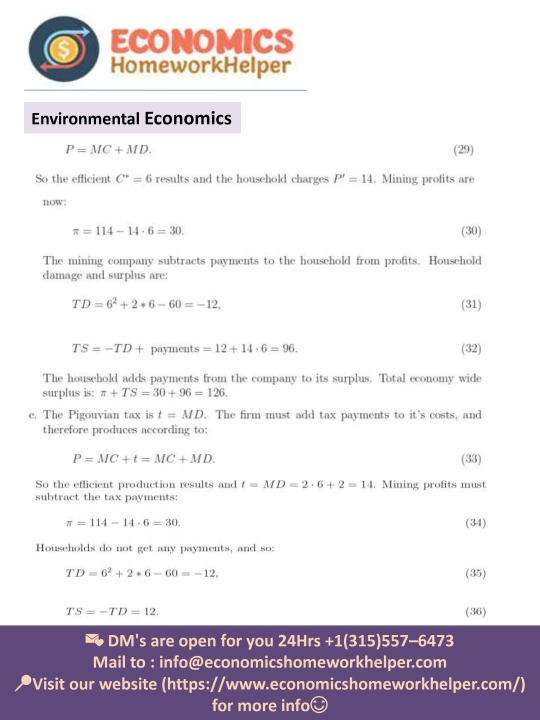
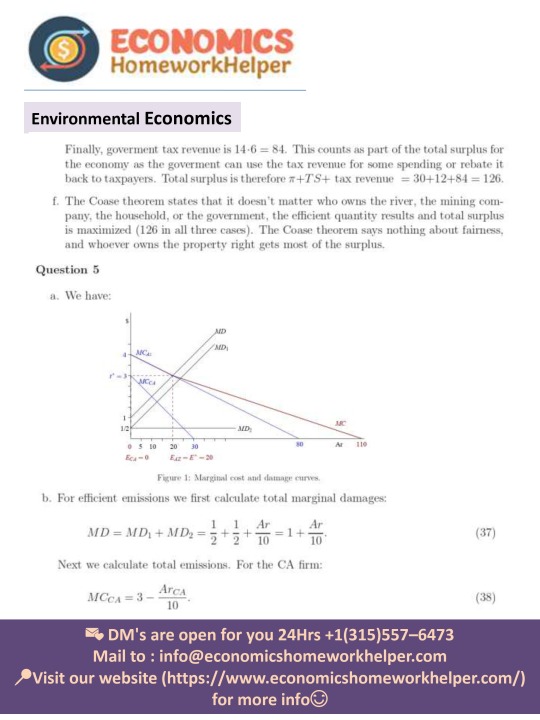
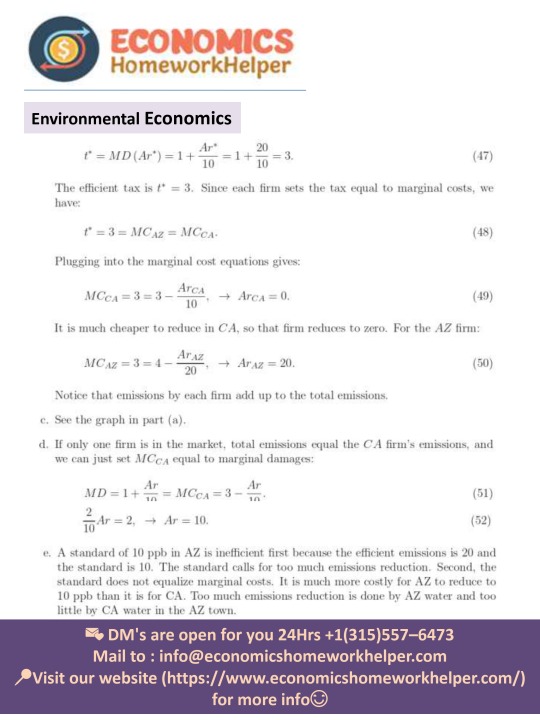
The environmental economics tutors at Economics Homework Help are certified professionals with years of experience in research, teaching, and addressing homework problems. They are acquainted about the various environmental economics ideas and how they are used. Before tackling an assignment, we analyse all the criteria and requirements to reduce any potential faults.
Our Environmental Economics assignment writing help can give you a perfect solution without compromising on the quality. We are known for years for providing a well-written solution to the students.
#economicshomeworkhelp#domyeconomics#economics help#economics experts#environmental economics#educaion#writing service#help with economics#homework helper
1 note
·
View note
Text
In the earliest 2000s I saw a documentary where a very esteemed ecologist (idk his name, don't remember, I was a kid ya know) said "Money isn't real. The environment is." and I have been excessively annoying about this exact subject (that money is FAKE but our planet is REAL) ever since
5K notes
·
View notes
Link
With climate negotiators from around the world gathered in Sharm El-Sheikh for COP27, attention focused on a few critical issues impacting the implementation of the Paris Agreement. Hear more in this episode of the ‘Environmental Insights’ podcast produced by the Harvard Environmental Economics Program.
#COP27#UN Climate Conference#UN Climate Summit#UNFCCC#Climate Policy#Global Climate#Climate Talks#Climate Change#Harvard#harvard kennedy school#Environmental Economics
0 notes
Text

A.2.4 Are anarchists in favour of “absolute” liberty?
No. Anarchists do not believe that everyone should be able to “do whatever they like,” because some actions invariably involve the denial of the liberty of others.
For example, anarchists do not support the “freedom” to rape, to exploit, or to coerce others. Neither do we tolerate authority. On the contrary, since authority is a threat to liberty, equality, and solidarity (not to mention human dignity), anarchists recognise the need to resist and overthrow it.
The exercise of authority is not freedom. No one has a “right” to rule others. As Malatesta points out, anarchism supports “freedom for everybody … with the only limit of the equal freedom for others; which does not mean … that we recognise, and wish to respect, the ‘freedom’ to exploit, to oppress, to command, which is oppression and certainly not freedom.” [Errico Malatesta: His Life and Ideas, p. 53]
In a capitalist society, resistance to all forms of hierarchical authority is the mark of a free person — be it private (the boss) or public (the state). As Henry David Thoreau pointed out in his essay on “Civil Disobedience” (1847)
“Disobedience is the true foundation of liberty. The obedient must be slaves.”
#faq#anarchy faq#revolution#anarchism#daily posts#communism#anti capitalist#anti capitalism#late stage capitalism#organization#grassroots#grass roots#anarchists#libraries#leftism#social issues#economy#economics#climate change#climate crisis#climate#ecology#anarchy works#environmentalism#environment#solarpunk#anti colonialism#mutual aid#cops#police
139 notes
·
View notes
Text
{ MASTERPOST } Everything You Need to Know about Repairing Our Busted-Ass World
On poverty:
Starting from nothing
How To Start at Rock Bottom: Welfare Programs and the Social Safety Net
How to Save for Retirement When You Make Less Than $30,000 a Year
Ask the Bitches: “Is It Too Late to Get My Financial Shit Together?“
Understanding why people are poor
It’s More Expensive to Be Poor Than to Be Rich
Why Are Poor People Poor and Rich People Rich?
On Financial Discipline, Generational Poverty, and Marshmallows
Bitchtastic Book Review: Hand to Mouth by Linda Tirado
Is Gentrification Just Artisanal, Small-Batch Displacement of the Poor?
Coronavirus Reveals America’s Pre-existing Conditions, Part 1: Healthcare, Housing, and Labor Rights
Developing compassion for poor people
The Latte Factor, Poor Shaming, and Economic Compassion
Ask the Bitches: “How Do I Stop Myself from Judging Homeless People?“
The Subjectivity of Wealth, Or: Don’t Tell Me What’s Expensive
A Little Princess: Intersectional Feminist Masterpiece?
If You Can’t Afford to Tip 20%, You Can’t Afford to Dine Out
Correcting income inequality
1 Easy Way All Allies Can Help Close the Gender and Racial Pay Gap
One Reason Women Make Less Money? They’re Afraid of Being Raped and Killed.
Raising the Minimum Wage Would Make All Our Lives Better
Are Unions Good or Bad?
On intersectional social issues:
Reproductive rights
On Pulling Weeds and Fighting Back: How (and Why) to Protect Abortion Rights
How To Get an Abortion
Blood Money: Menstrual Products for Surviving Your Period While Poor
You Don’t Have to Have Kids
Gender equality
1 Easy Way All Allies Can Help Close the Gender and Racial Pay Gap
The Pink Tax, Or: How I Learned to Love Smelling Like “Bearglove”
Our Single Best Piece of Advice for Women (and Men) on International Women’s Day
Bitchtastic Book Review: The Feminist Financial Handbook by Brynne Conroy
Sexual Harassment: How to Identify and Fight It in the Workplace
Queer issues
Queer Finance 101: Ten Ways That Sexual and Gender Identity Affect Finances
Leaving Home before 18: A Practical Guide for Cast-Offs, Runaways, and Everybody in Between
Racial justice
The Financial Advantages of Being White
Woke at Work: How to Inject Your Values into Your Boring, Lame-Ass Job
The New Jim Crow, by Michelle Alexander: A Bitchtastic Book Review
Something Is Wrong in Personal Finance. Here’s How To Make It More Inclusive.
The Biggest Threat to Black Wealth Is White Terrorism
Coronavirus Reveals America’s Pre-existing Conditions, Part 2: Racial and Gender Inequality
10 Rad Black Money Experts to Follow Right the Hell Now
Youth issues
What We Talk About When We Talk About Student Loans
The Ugly Truth About Unpaid Internships
Ask the Bitches: “I Just Turned 18 and My Parents Are Kicking Me Out. How Do I Brace Myself?”
Identifying and combatting abuse
When Money is the Weapon: Understanding Intimate Partner Financial Abuse
Are You Working on the Next Fyre Festival?: Identifying a Toxic Workplace
Ask the Bitches: “How Do I Say ‘No’ When a Loved One Asks for Money… Again?”
Ask the Bitches: I Was Guilted Into Caring for a Sick, Abusive Parent. Now What?
On mental health:
Understanding mental health issues
How Mental Health Affects Your Finances
Stop Recommending Therapy Like It’s a Magic Bean That’ll Grow Me a Beanstalk to Neurotypicaltown
Bitchtastic Book Review: Kurt Vonnegut’s Galapagos and Your Big Brain
Ask the Bitches: “How Do I Protect My Own Mental Health While Still Helping Others?”
Coping with mental health issues
{ MASTERPOST } Everything You Need to Know about Self-Care
My 25 Secrets to Successfully Working from Home with ADHD
Our Master List of 100% Free Mental Health Self-Care Tactics
On saving the planet:
Changing the system
Don’t Boo, Vote: If You Don’t Vote, No One Can Hear You Scream
Ethical Consumption: How to Pollute the Planet and Exploit Labor Slightly Less
The Anti-Consumerist Gift Guide: I Have No Gift to Bring, Pa Rum Pa Pum Pum
Season 1, Episode 4: “Capitalism Is Working for Me. So How Could I Hate It?”
Coronavirus Reveals America’s Pre-existing Conditions, Part 1: Healthcare, Housing, and Labor Rights
Coronavirus Reveals America’s Pre-existing Conditions, Part 2: Racial and Gender Inequality
Shopping smarter
You Deserve Cheap Toilet Paper, You Beautiful Fucking Moon Goddess
You Are above Bottled Water, You Elegant Land Mermaid
Fast Fashion: Why It’s Fucking up the World and How To Avoid It
You Deserve Cheap, Fake Jewelry… Just Like Coco Chanel
6 Proven Tactics for Avoiding Emotional Impulse Spending
Join the Bitches on Patreon
#poverty#economics#income inequality#wealth inequality#capitalism#working class#labor rights#workers rights#frugal#personal finance#financial literacy#consumerism#environmentalism
84 notes
·
View notes
Text
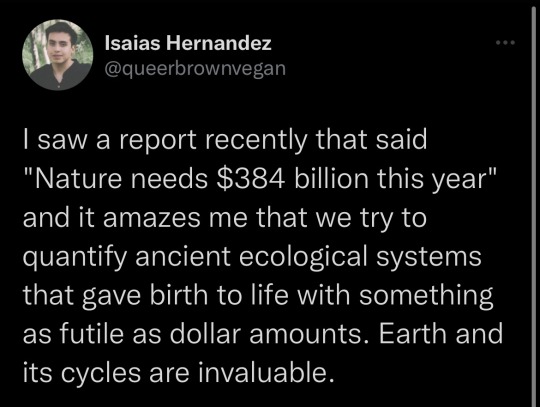
I saw a report recently that said "Nature needs $384 billion this year" and it amazes me that we try to quantify ancient ecological systems that gave birth to life with something as futile as dollar amounts.
Earth and its cycles are invaluable.
-qbv
#queerbrownvegan#bipoc#climate#climate change#climate crisis#climate justice#social justice#economics#late stage capitalism#intersectionality#intersectional environmentalism#sustainability
820 notes
·
View notes